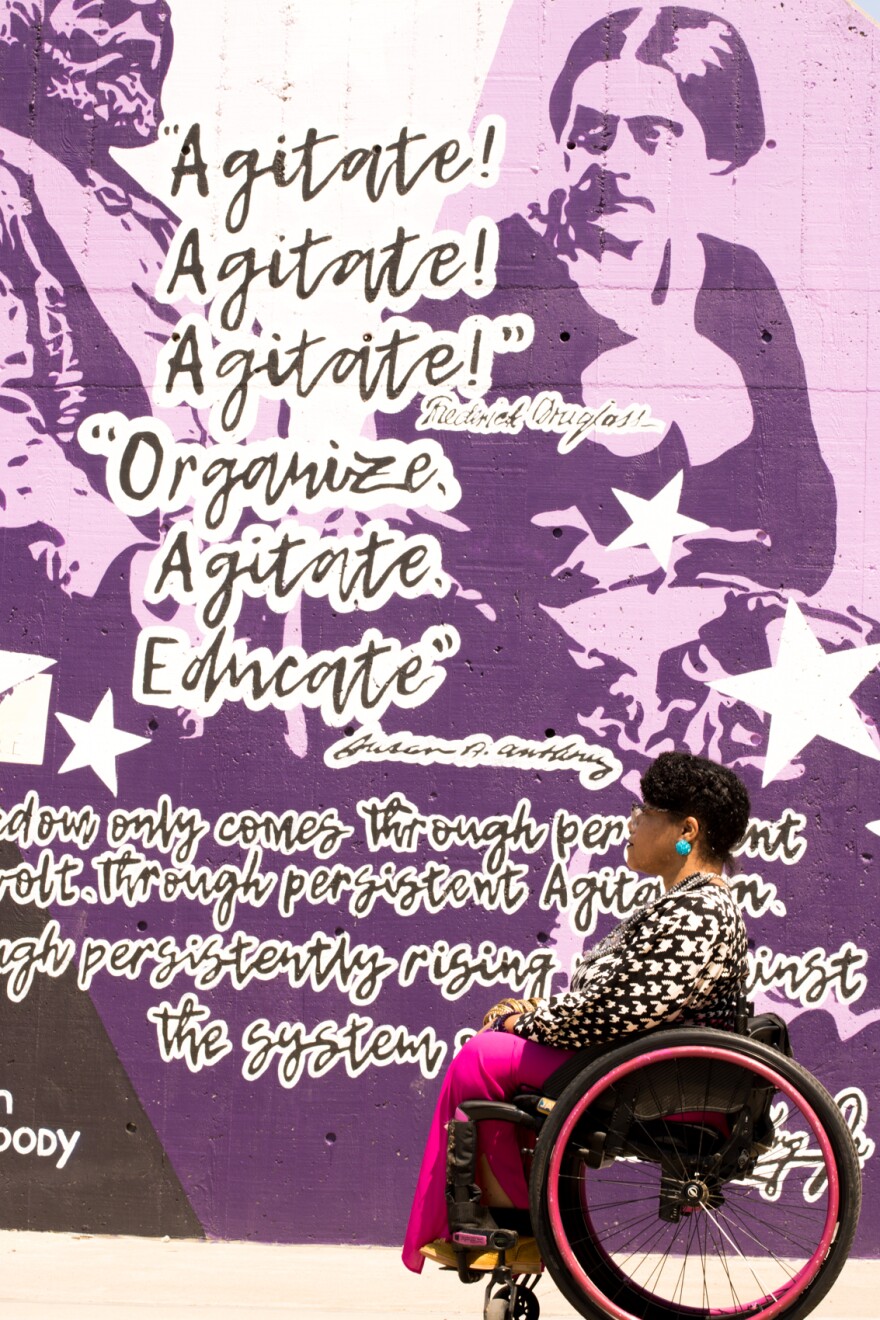Democrats in Washington are working on the details of their enormous budget reconciliation bill.
President Joe Biden wants to include $400 billion for home health care services.
This has long been a priority for disability advocates and others who say the investment is needed to keep people in their own homes and communities and out of institutional settings.
"We have to really reconcile how we are looking at care and caregiving, and that what we have is the 'something is better than nothing,' and it's not working," Luticha Doucette, a disability rights activist in Rochester.
Doucette was in a car crash in 1985 in which she broke her neck and suffered a brain injury. She uses a wheelchair and has limited use of her hands.
She does not currently have in-home care because she lost her employer-provided health insurance coverage when she started her own consulting business. Doucette has been unable to find an affordable plan that includes caregiving services.
She's very concerned about getting the care she needs to stay in her home and continue to be active in the community as she gets older.
"It sounds melodramatic," Doucette said, "but I'd rather die than go into an institutional setting."
Doucette said the isolation of the COVID-19 pandemic only highlighted the long-overdue need for more resources to allow people with disabilities to enjoy their independence and maintain their health without being placed in a nursing home.

"There are disabled people who can't use the bathroom," she said. "They are not even able to bathe. Some of them are saying they'd rather die by suicide because they can't get the caregivers they need in order to live the life that everyone else takes for granted."
Concerns about lack of access to long-term care aren't limited to people with disabilities. It's a problem for older Americans, too.
Those who earn too much money to qualify for Medicaid but too little to pay out of pocket for in-home care or assisted living have limited options.
On Monday, NPR reported that Democrats plan to use special budget rules to pass new bills without the threat of a Republican filibuster in the Senate.
Republicans have largely rejected any plans for more spending, saying it would stand in the way of other critical economic priorities.
This story is reported from WXXI’s Inclusion Desk.


